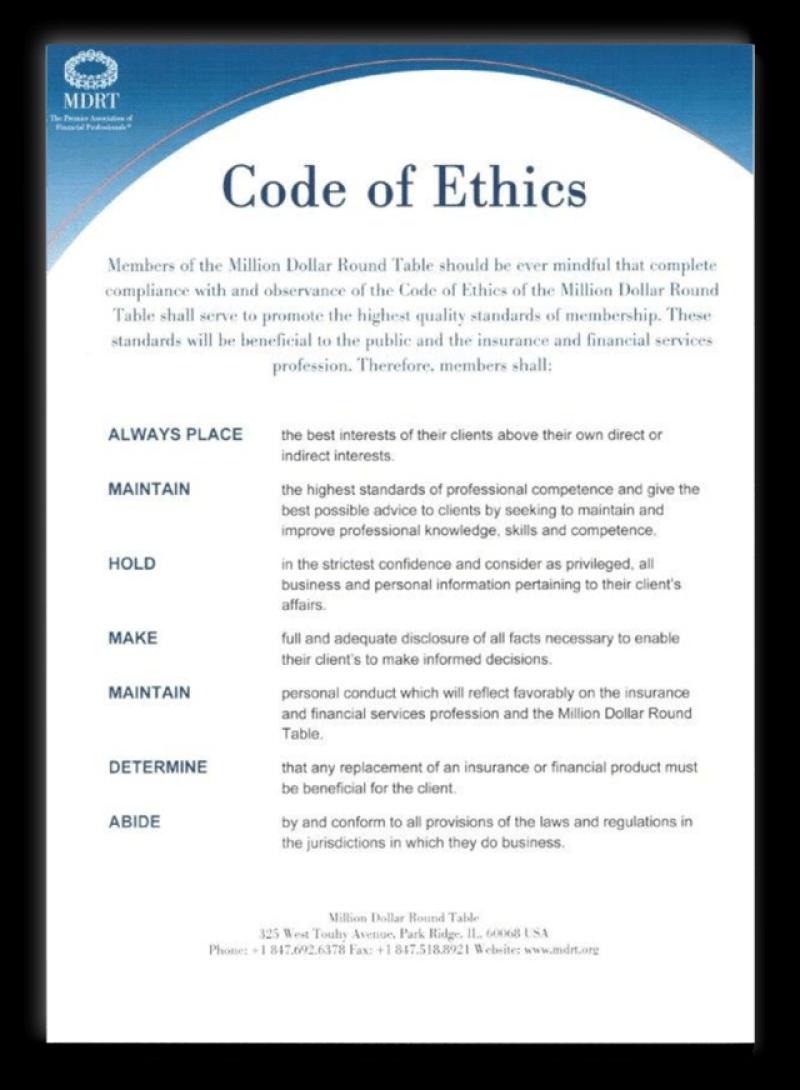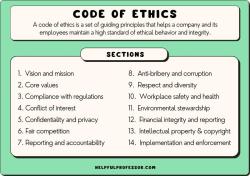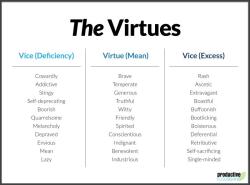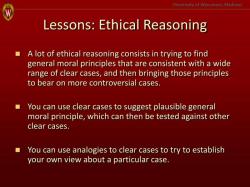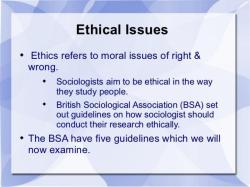Do we really need Code of ethics?
Yes, the establishment and adherence to a code of ethics are highly important in various fields and organizations. A code of ethics serves as a set of principles and guidelines that outline expected behavior, moral standards, and professional conduct for individuals or members of a particular group. Here are some reasons why a code of ethics is considered necessary and impactful:
Guidance for Decision-Making:
- A code of ethics provides a framework for individuals to make ethical decisions. It offers guidance on what is considered morally acceptable and helps navigate complex situations.
Professional Integrity:
- A code of ethics promotes and upholds professional integrity by setting standards for honesty, transparency, and fairness. It establishes expectations for ethical behavior within a profession or organization.
Building Trust and Credibility:
- Adherence to a code of ethics helps build trust and credibility among stakeholders, including clients, customers, colleagues, and the public. Knowing that individuals or organizations follow ethical standards enhances their reputation.
Preventing Unethical Behavior:
- A code of ethics serves as a deterrent to unethical behavior. It outlines the consequences of violations and encourages individuals to act ethically to avoid negative repercussions.
Conflict Resolution:
- When ethical standards are clearly defined, it becomes easier to resolve conflicts and disputes. A code of ethics provides a reference point for resolving disagreements based on shared principles.
Legal Compliance:
- In many professions, a code of ethics aligns with and supports legal requirements. Adhering to ethical standards helps ensure legal compliance and mitigates the risk of legal issues.
Professional Development:
- A code of ethics contributes to ongoing professional development. It encourages individuals to stay informed about ethical issues, engage in ethical decision-making, and participate in ethics training and discussions.
Fostering a Positive Organizational Culture:
- Organizations with a strong ethical culture tend to attract and retain employees, clients, and partners who value integrity. A code of ethics contributes to the creation of a positive and ethical organizational culture.
Social Responsibility:
- A code of ethics often includes considerations for social responsibility. It encourages individuals and organizations to contribute positively to society and address broader ethical concerns beyond individual actions.
Promoting Accountability:
- A code of ethics establishes accountability for individuals and organizations. It clarifies expectations, making it easier to hold individuals responsible for their actions.
While the specifics of a code of ethics can vary across professions and organizations, the overarching goal is to foster a culture of integrity, responsibility, and ethical decision-making. The impact of a well-defined and well-implemented code of ethics extends beyond individual behavior to influence the overall reputation and success of professions and organizations.
The Purpose and Value of a Code of Ethics: Guiding Behavior and Building Trust
1. Purpose and Value:
A Code of Ethics serves several important purposes in society:
- Establishing Standards and Expectations: It defines ethical principles and acceptable behavior within a specific context, providing a clear framework for decision-making and actions.
- Promoting Accountability and Transparency: It fosters accountability among individuals and organizations by outlining expected ethical conduct and holding them responsible for their actions.
- Building Trust and Confidence: It builds trust and confidence within society by demonstrating a commitment to ethical behavior and transparent decision-making.
- Protecting Rights and Welfare: It helps protect the rights and welfare of individuals and groups by ensuring ethical conduct that considers the well-being of all stakeholders.
- Promoting Consistency and Fairness: It encourages consistency and fairness in applying ethical principles across different situations and individuals.
- Encouraging Moral Development: It encourages individuals and organizations to reflect on their values and strive for continuous ethical growth.
2. Guiding Behavior and Actions:
A Code of Ethics guides behavior and actions in various contexts by:
- Providing a Reference Point: It serves as a constant reference point for individuals to consult when making ethical decisions.
- Identifying Ethical Dilemmas: It helps individuals identify potential ethical dilemmas and navigate difficult situations with greater clarity.
- Facilitating Decision-Making: It offers a framework for analyzing ethical issues, weighing different options, and making informed decisions.
- Resolving Conflicts: It provides a basis for resolving ethical conflicts and disputes in a fair and transparent manner.
- Promoting Ethical Culture: It contributes to building an ethical culture where ethical conduct is expected, valued, and rewarded.
3. Implications of Not Having a Code of Ethics:
The absence of a Code of Ethics can have significant negative consequences:
- Increased Unethical Conduct: Without clear guidelines and expectations, unethical behavior may become more prevalent, leading to abuse of power, corruption, and harm to individuals and society.
- Lack of Trust and Confidence: Public distrust and lack of confidence in individuals and institutions can arise due to concerns about ethical conduct and potential misconduct.
- Unfairness and Inequality: Without a framework for ethical decision-making, decisions may be biased, unfair, and disadvantage certain groups or individuals.
- Erosion of Moral Standards: Without a clear commitment to ethical principles, overall moral standards within society can decline, leading to a more permissive environment for unethical behavior.
Conclusion:
A Code of Ethics serves as a vital tool for promoting ethical behavior, building trust, and safeguarding the well-being of individuals and society as a whole. Its presence provides clarity, accountability, and a framework for making informed ethical decisions. By adhering to ethical principles and upholding a strong code of ethics, we can strive for a more just, fair, and equitable society.
